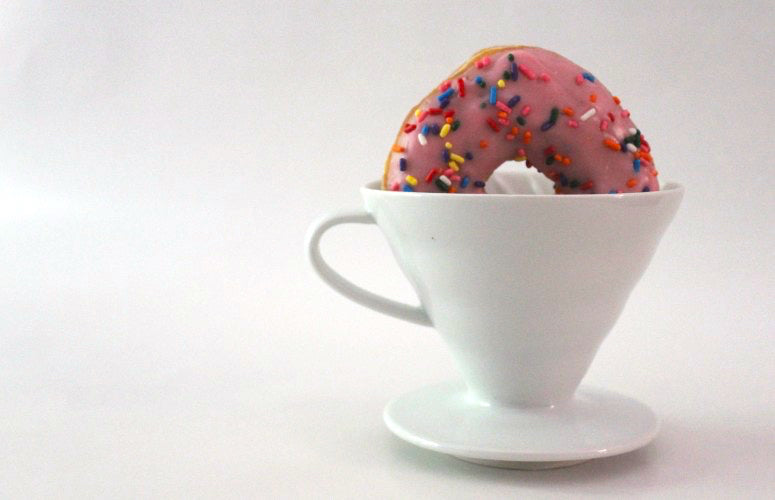
A Guide to Buying Coffee on the Internet: Gourmet, Specialty, & Third Wave Coffee Defined
Share
Being interested in coffee, I talk to a lot of people about coffee and their approach to it. One of the things that surprises and interests me the most, is how different someone’s perception of a good cup of coffee can be from mine. More specifically, when I start talking about coffee, I am taken aback when someone steers the conversation towards “Gourmet Coffee.”
I am not a coffee snob and I don’t mind what coffee you drink or what you put in it. I have and do drink coffee in the bottom tiers of quality on occasion. That being said, gourmet flavored coffees are unpalatable to me, I can’t bring myself to drink them. I’m not mad at you if that is what you like, I’m just not going to drink it.
This of course begs the question, what is gourmet coffee and how does it differ from Third Wave coffee like the coffee sold by Angel’s Cup?
Defining Some Terms
When trying to understand the differences between gourmet coffee and Third Wave coffee, it helps to have a base definition of each. Here is the “view from 30,000 feet,” brief fly-over of a few of the common terms. Gourmet coffee- This term is actually a little up for interpretation. It doesn’t have a specific meaning in itself but it does have a connotation. As a general rule of thumb, if a roaster is referring to their coffee as gourmet, you can probably expect these things:- There will be a heavy emphasis on flavored coffee
- They will probably describe their coffee as having a “shelf-life” or expiration date (15 months on one website!).
- The majority of the coffee will come out of extremely large coffee farms in Brazil.